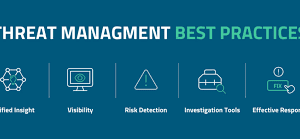In the world of rapidly growing digital landscape, Rekha Kota, a renowned expert in cloud-based human capital management (HCM) systems, delves into the cutting-edge innovations shaping employee experiences and redefining organizational effectiveness. By focusing on advancements in digital HR solutions, her research offers actionable insights for creating resilient, engaged, and high-performing workforces.
Revolutionizing Employee Autonomy
Integrating Employee Self-Service (ESS) functionality into HCM systems revolutionizes employee interactions with HR services. ESS enables individuals to handle tasks like updating personal details, tracking performance goals, and managing benefits independently. This fosters ownership of professional development and reduces reliance on HR for routine inquiries. Studies reveal organizations using ESS see a 60% drop in administrative tasks and a 45% boost in employee satisfaction with HR services. Streamlined processes enhance data accuracy and speed, allowing employees to focus on core responsibilities, ultimately driving greater operational efficiency across the organization.
AI-Driven Workforce Insights
Artificial intelligence has introduced groundbreaking capabilities in workforce management by enabling continuous feedback loops and predictive analytics. AI systems leverage sentiment analysis, communication patterns, and performance data to provide real-time insights into employee engagement levels. These tools enable HR teams to identify potential risks, such as low morale or high turnover likelihood, long before they escalate into organizational challenges. Organizations adopting AI-driven feedback mechanisms report a 42% improvement in early problem detection and a 36% boost in employee retention rates. Predictive analytics also allow for targeted interventions, ensuring that resources are directed where they are most impactful. This proactive approach creates a supportive environment where employees feel valued and heard.
Mobile-First Accessibility: Redefining Engagement
The rise of mobile-first HR solutions has transformed employee engagement by making HR services accessible anytime, anywhere. Mobile platforms have become essential for today’s increasingly diverse and remote workforces. With functionalities such as time tracking, expense reporting, and learning module access available on mobile devices, employees can seamlessly complete tasks on the go. Data shows that mobile-enabled HR platforms lead to a 74% increase in program participation and a 68% improvement in response rates for time-sensitive activities. Furthermore, organizations report faster task completion rates, with mobile users handling routine HR functions up to 60% quicker than those relying on traditional desktop systems. These improvements highlight the role of mobile accessibility in fostering a more flexible and responsive workplace culture.
Elevating User Experience in HR Platforms
User experience (UX) has become a critical success factor in the adoption of HCM systems. Modern platforms are designed with intuitive interfaces, personalized dashboards, and adaptive workflows that cater to individual user needs. For instance, role-based access controls and intelligent defaults streamline navigation, reducing complexity for employees and HR teams alike. Organizations prioritizing UX optimization have witnessed a 41% increase in user satisfaction and a 56% reduction in task abandonment rates. Additionally, improvements in UX have contributed to a 70% drop in support tickets, demonstrating the efficiency of well-designed systems. By focusing on user-centric design, companies can enhance system adoption rates and reduce training costs, ultimately maximizing the return on investment in HR technology.
Advancing Workforce Integration and Development
Organizations are prioritizing work-life balance and talent development through innovative HCM platforms. AI-driven scheduling, real-time performance monitoring, and wellness tracking foster a 64% rise in employee satisfaction and a 39% drop in burnout. Simultaneously, AI-powered learning systems deliver personalized growth pathways, boosting skill acquisition by 73% and knowledge retention by 58%. These platforms align employee aspirations with business goals, achieving a 2.5x return on training investments. By integrating flexible work arrangements and tailored learning solutions, organizations enhance productivity, loyalty, and workforce readiness, creating supportive environments that balance professional and personal needs while driving long-term success.
To conclude, Rekha Kota’s analysis highlights the transformative impact of cloud-based HCM systems on workforce management. By leveraging innovations such as AI-driven insights, mobile-first solutions, and user-focused designs, organizations can achieve remarkable improvements in employee engagement, retention, and productivity. The research underscores the importance of aligning technological advancements with human-centric principles to create adaptive, inclusive, and resilient workplaces. As organizations navigate the future of work, these insights provide a clear path toward maximizing the potential of their most valuable asset—their people.



































